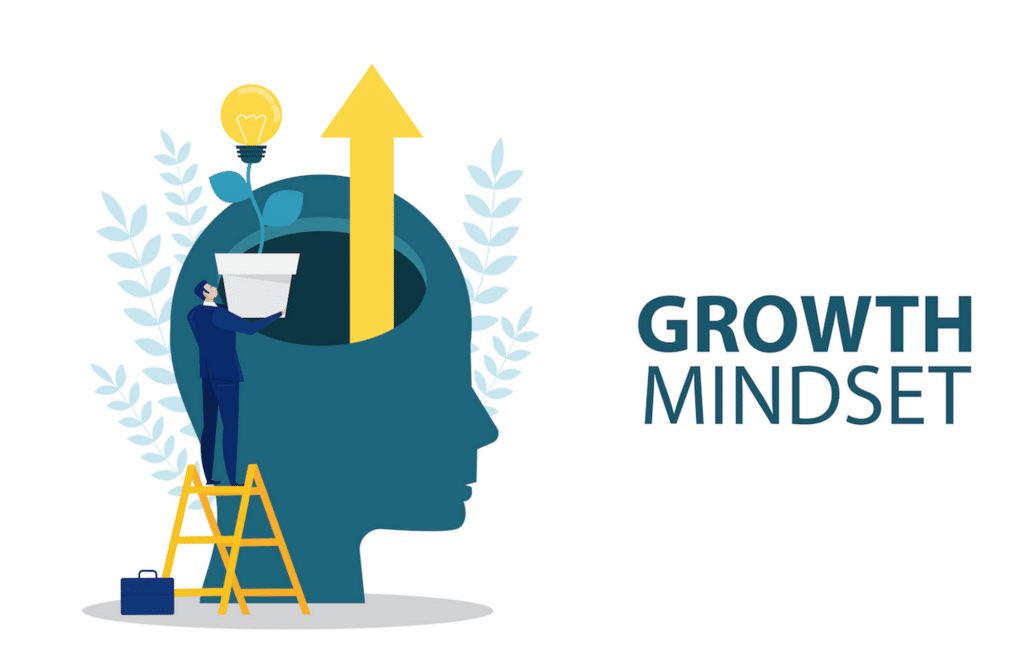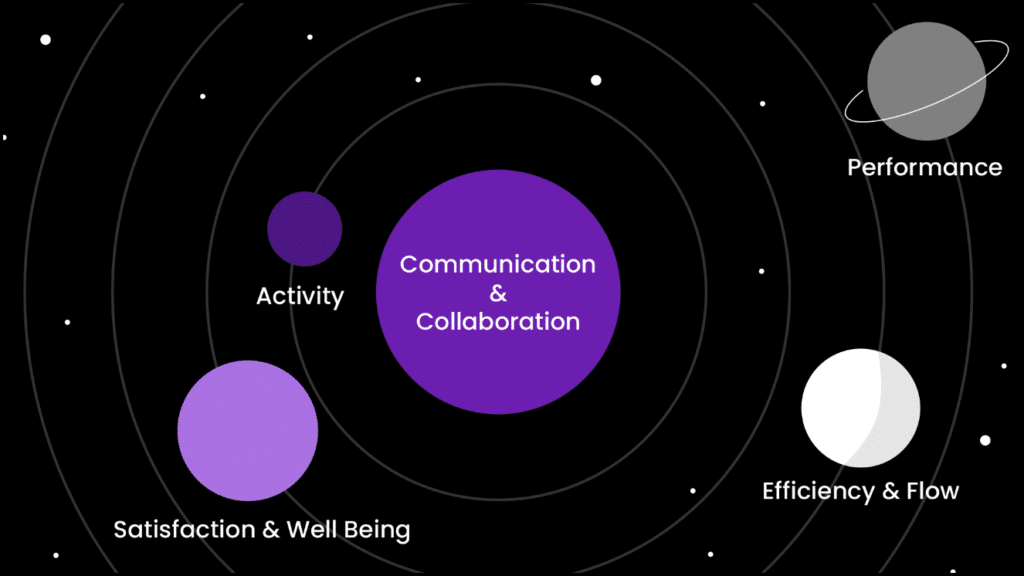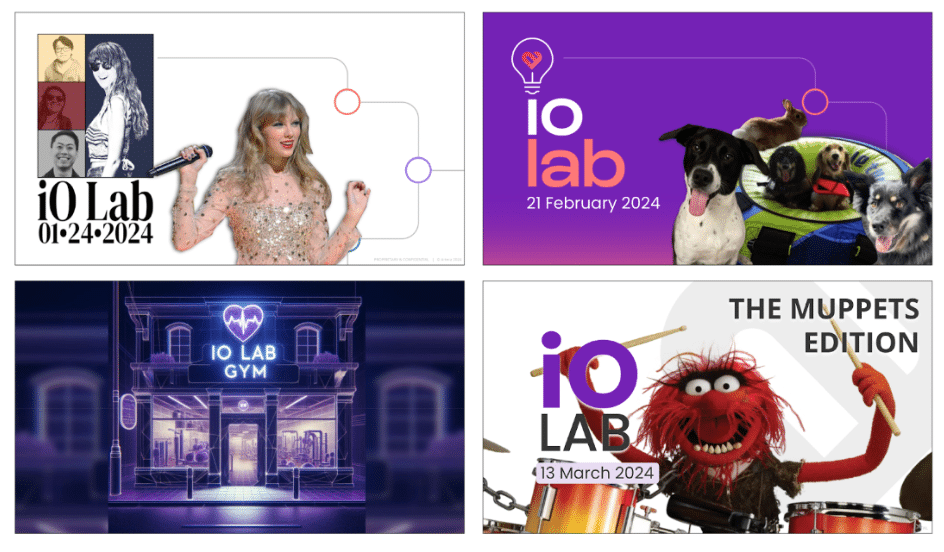
💡 Health Disclaimer: The information provided in this article and other content provided in this blog, website, or in any linked materials is for educational and informational purposes only and is not intended to serve as medical advice. I am not a healthcare professional of any kind. If you experience symptoms that interfere with your day to day activities, you should consult a healthcare professional. Artera is not liable for risks or issues associated with using or acting upon the information in this article.
I am a software engineer and I’m not surprised when smart and dedicated people in my field talk to me about feeling guilty and afraid or lacking confidence. I have noticed, that my colleagues often express these types of emotions because they work alongside others who – they think – adapt easily to an ever-changing environment, or they are tasked with keeping up with the updates of new frameworks, tools and machine learning developments. This can feel daunting and may spark feelings of inadequacy. Depending on the frequency and the effect of these emotions, they might be referred to as Impostorism, or Impostor Syndrome.

According to M. R. Huecker, J Shreffler, et al. and multiple other sources dating back to the 1980s, Impostor Syndrome is a behavioral health phenomenon, not an official psychiatric diagnosis. It consists of feeling incompetent, undeserving and ashamed regardless of one’s achievements and experiencing a constant struggle of internal conflicts. The related anxiety episodes might range from mild to severe.
Due to the nature of the symptoms, it is challenging to account for the exact number of professionals frequently affected, but a rough estimate is 20%. Research suggests that Impostor Syndrome can affect people disproportionately. Women from ethnic minorities may be more likely to experience Impostor Syndrome. Impostor feelings are even more common in high pressure, high achievement roles, such as those held by physicians. This blog post will cover some of my strategies to help address impostor feelings.
My Tips on Managing Impostor Syndrome
Turning to a Community
It is important to remember that people are not alone, and that Impostor Syndrome is a common experience, that transcends job titles and industries. Occasional feelings of self-doubt can be effectively supported by sharing them in trusted circles: friends, family, empathetic colleagues or mentors. It is also beneficial to find a community that can provide helpful resources or even professional referrals in one’s workplace. Artera offers an Employee Assistance Program and has the ADAPT (Abled and Disabled Allies Partnering Together) Employee Resource Group available that people can turn to in cases like this. Discussing these concerns can help put things into perspective, provide reassurance and create a sense of solidarity that can positively impact those experiencing Impostorism.
ADAPT serves as a place where I can freely ask for advice about career challenges, methods of working and communicating with various people with different ways of thinking, needs and accommodations. It is also a great place just to have a laugh.
Creating a Habit of Healthy Routines
Another helpful aspect could be to create a habit of healthy routines that allow incorporating both learning and development, and real rest. Individuals with impostor feelings tend to overcommit and find it difficult to truly wind down in their free time. They might think that instead of preparing for or dealing with their work projects, they are only wasting their time recharging.
Feeling guilty about having bad feelings can result in a double tax that slips into one’s personal life as well. Pairing effective relaxation with sleep and exercise is just as important. I recommend listening to your own needs based on your own hobbies, but making sure to allocate time for nutritious meals, spending time outdoors, reading a good book, playing games, or any activity you enjoy can be useful.
Being Positive with Ourselves
Other coping mechanisms include working on being more positive with ourselves in our self-talk and saying “yes” to new opportunities that suit us, even though they might sound terrifying. The goal is not to dismiss or downplay negative emotions, nor to avoid hardships. All emotions are valid and should be acknowledged without judgment. Reframing setbacks as learning experiences can promote a more balanced perspective.
Identifying Opportunities to Learn and Grow

It is hard to confront the difficulties Impostorism poses without improving our self knowledge. Calibration is crucial. Understanding our strengths and weaknesses helps differentiate between mere fears and gaps in ability before taking on new challenges. This perception of the self might have to come through brutally honest conversations, and not constant unhealthy comparison to other people. In a team with a healthy growth mindset, a supportive manager or mentor and a company culture that fosters constructive feedback, there are many chances to improve our self perception. As part of this journey, I propose asking these questions during career conversations:
- Are there specific tasks or projects where you feel I consistently perform well? Are there any opportunities to do more of these?
- What do you think are the biggest things holding me back? or Are there any recurring challenges you have observed in my work?
Answers received can be an effective tool not only to gain insight into situations in which you perform best, but to identify opportunities for learning and growing. Being able to close the gap on something you were lacking and making note of that achievement can help ease the sense of insecurity.
I have found that Artera has a great feedback culture and that makes it easier to ask the hard questions. People genuinely want you to be your better self and are grateful for your time invested in doing so. Instead of blaming failure, we make sure to find ways to do it better the next time. Colleagues frequently praise each other publicly in Slack channels or in person, and even though we work globally and remotely, we still find the time to celebrate together.
Setting Realistic Expectations
It is also important to set realistic expectations. Find solace in that no one knows everything, and it is impossible to be an expert in every aspect.
An approach to utilize can be the SMART (Specific, Measurable, Achievable, Relevant and Time-bound) goal framework. You should be able to find many tips on the internet to put it into action. I have also added two articles from the Harvard Business Review’s website at the end of this post on goal setting that I recommend. Do not use the framework to limit yourself, and lessen the effort needed to accomplish your objectives, but rather to validate your desired targets.
What also works for me is shifting my focus from my self doubt and sharing what I know with others. Mentoring and helping can reinforce your own competence.
Conclusion: Using this Toolkit and Asking for Help
Impostor feelings are not constant. In situations when people are faced with new challenges, such as transitioning between roles or companies, they can get stronger. The actionable toolkit above intends to serve as a resource to reach back to in such an event.
By participating in a supportive community, adopting healthy routines, cultivating self-positivity, embracing growth opportunities and setting realistic expectations individuals can more confidently pursue their personal or professional goals.
In a severe case, feeling inadequate can even surpass all evidence of reality. Strong episodes in many cases root in one’s childhood and are worth looking into through therapy with a certified professional.
Resources
- Images from TA Design through Shutterstock
- Additional recommended reading regarding:
3 Popular Goal Setting Techniques Managers Should Avoid
5 Ways to Set More Achievable Goals
Crucial Conversations: Tools for Talking When Stakes are High
The contents of this post as well as the opinions expressed herein do not contain business advice. The business information provided is for general informational and educational purposes only and is not a substitute for professional advice. Accordingly, before taking any actions based upon such information, we encourage you to consult with the appropriate professionals. THE USE OR RELIANCE OF ANY INFORMATION CONTAINED IN THIS POST IS SOLELY AT YOUR OWN RISK.




